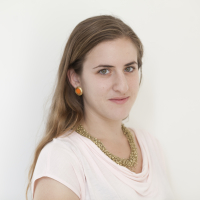Welcome to HaOlam Street, Israel. There are six families on the block; each family has a different immigrant story. But there are no Arab families on this street. In fact, there are no non-Jews at all.
The “HaOlam Street” scenario is a part of the Israel curriculum at a Hebrew language charter school in Brooklyn. But when one in five citizens of Israel are Arab, this educational hypothetical may not only be potentially untrue; it is poor pedagogy.

Ignoring a fifth of Israeli citizenry in lessons about Israel will not “promote cultural understanding” (part of the school mission) in a country where the term can often mean determining which end of the gun you’re staring down.
What is more troubling, the board members rationalization of HaOlam Street’s uniformity. David Gedzelman, a board member of the Steinardt-backed grant-giving network HCSC (Hebrew Charter School Center), says the street is "realistic," and, when asked about the omission of non-Jews, he said that the scenario “reflects the way neighborhoods are in Israel.”
When asked how, if at all, the Israeli-Palestinian conflict enters the classroom, HLA’s principle school announced that, “it is not part of the curriculum.” Jessica Lieberman, who helped establish the newest Hebrew language charter school in Washington DC, said that that Israel will be taught apolitically, “just as you learn about any other country in elementary school.”
But the thing is, when Israel's in the classroom, you cannot avoid politics. Israel is a conflict-ridden country, simple as that. It has some beautiful ways of coping (the Hand-in-Hand school system, for example) and some less-than-beautiful ways, but to try and avoid the conflict is educationally disingenuous. And at this rate, instead of raising promising members of civil society, we risk turning HLA’s diverse group of kids (45% are "non-white") into newly minted Hasbaristsas.
HCSC plans to help open 20 more schools within the next five years, stretching from New Jersey to San Diego, and all of them—as publicly funded charter schools—will be open to all Americans. Hebrew language charter schools are a marvelous concept with admirable aims, but the exclusion of an entire ethnic group compromises such tutelage. And when some of these Hebrew charters, according to the Forward, “see themselves as fonts of Israel education that will cultivate students—both Jews and non-Jews—to serve as goodwill ambassadors for Israel in the years ahead” we have to ask ourselves if public funding is appropriate for such a project.
Just as another Hebrew language charter school was approved in DC a few days ago, an Arabic language school was rejected. According to the charter spokeswoman, it wasn’t “fully thought out.” But be that as it may, it might be worth asking Arabic speakers how they might feel about living on “HaOlam street.”






